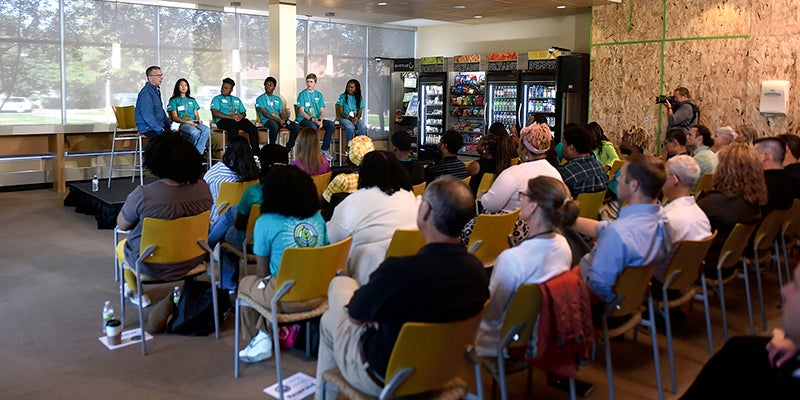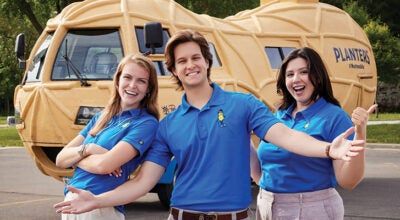Trying out science; Students make annual visit to The Institute
Published 10:17 am Friday, January 22, 2016

Gretchen Ramlo shows sixth-graders foods that contain cancer-preventative agents during the annual Sixth-Graders Day at the Institute. Photos provided by The Hormel Institute.
Austin students got another chance to learn about science at a renowned cancer facility on Thursday.
Hundreds of sixth-graders from Austin’s I.J. Holton Intermediate School and Pacelli Catholic Schools visited The Hormel Institute, University of Minnesota for the seventh annual “Sixth Graders Day at The Hormel Institute” aimed at getting students excited about science.
In addition to its cancer research, supporting science education is a key way The Institute aims to give back to the community, with programs for students from elementary school through post-doctoral experiences.
A dozen tours brought students and faculty through the halls of The Hormel Institute Thursday to get a firsthand look at cancer research in Austin.
The sixth-graders learned about The Hormel Institute’s research focused on discoveries leading to the prevention and control of cancer and its history as shown on the lobby’s wall mural highlighting its historic progress.
“It is encouraging to see everyone, especially young students, excited about science, including cancer research, because the scientific method is a great way to ask questions about the world all around us and to solve problems that have been around for a long time,” said Dr. Rebecca Morris in a press release. “I am happy to be part of Sixth-Grade day because I became interested in science and math at a very young age and continue to find the process of discovery exciting, challenging, and fun.”
The science demonstrations included creating “milk fireworks” (whole milk, food coloring and dish soap); dry ice bubbles that turn into smoke when touched; and foods — such as lettuce — that shatter after being dipped in liquid nitrogen.
Students also saw a display showcasing a dozen foods that contain cancer-preventative agents; 3-D imaging research; and cutting-edge, high-tech cancer-fighting tools that include two IBM supercomputers.
Other education outreach programs of The Hormel Institute include support of local science fairs; section leaders on-site for a day in a lab with Ellis middle school seventh and eighth graders; mentoring high school honors biology students; the SURE college internship program; curriculum/faculty support for the University of Minnesota-Rochester’s Biomedical Informatics and Computational Biology (BICB) program; and provides both doctoral and post-doctoral research training programs. Education plans and collaborations with higher education institutes such as Riverland Community College, RCTC, University of Minnesota and soon Carleton College, continue to grow.






